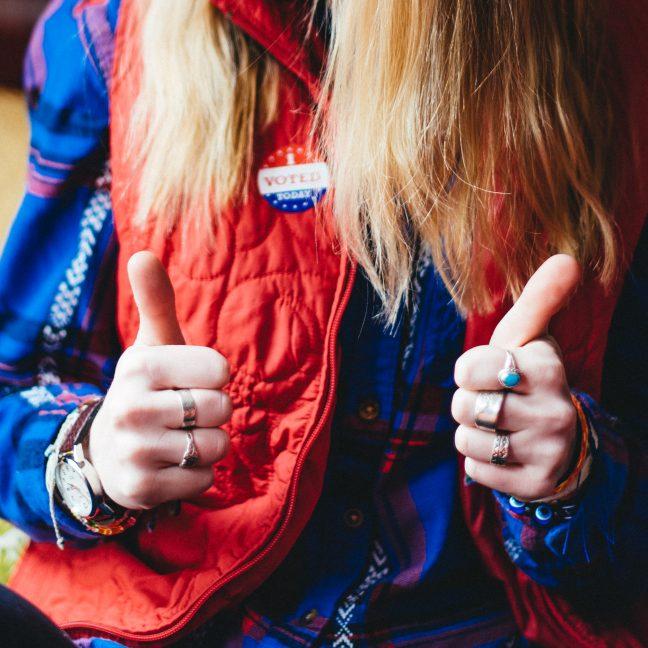In the spring of 1971, during turmoil over the senseless Vietnam War, Congress ratified the 26th amendment to the Constitution, lowering the voting age from 21 to 18. This age adjustment of three years conveyed an important lesson that we need to reflect upon today — the voting age is arbitrary, there’s no real reason for it to be 18 or 21, it just simply aligns neatly with our other arbitrarily enforced age norms and morals. Drinking alcohol has switched from 18 to 21, and tobacco across the country is oscillating between 18-21, so if everything else is in flux, why is voting stuck firmly at 18, only backed up by less than 50 years of precedent?
With the bloodshed of Parkland still fresh in our minds, coupled with contention swirling around the deeply shameful and heartless NRA pushing cold and cruel far-right narratives, the debate over the voting age has risen again. Some of the most adamant and strong voices against the NRA and its lapdog politicians have been the survivors of Parkland High. Figures like Emma González, David Hogg, Cameron Kasky, Sarah Chadwick and many other empowered and determined teens have been the most outspoken critics of the National Rifle Association, imploring the country to change so another mass shooting doesn’t plague us.
Sarah Chadwick, a junior at Parkland absolutely dunked on Sen. Marco Rubio, R-Florida, after being held accountable for the first time in a Town Hall, “we should change the names of AR-15s to ‘Marco Rubio’ because they are so easy to buy.” Sarah and all her peers are inspired, so why don’t they have a voice?
There’s no real argument against lowering the voting age to 16. Eighteen, 21, or any other age for that matter, don’t carry some intrinsic weight of voting capabilities. One of the most made arguments made by opponents to lowering the voting age is 16-year-olds aren’t nearly as politically inclined or aware of what’s going on. That’s not a nuanced argument, and it’s void of any concrete concerns — when you turn 18 you don’t magically become an aware, idealistic Athenian citizen with a heart beating for republicanism and democracy — no, you just turn 18.
At 14, my 10-year-old brother and I protested Governor Walker for a few days in the winter of 2011, we slept in the Capitol rotunda, chanting “this is what democracy looks like,” unified with thousands of others. We were both aware of what was going on. Age doesn’t play into the equation except for that someone older, is, well, older. Additionally, even if a 16-year-old isn’t as political, or has as strong of political views, so what? There’s nothing in the Constitution that says you need to know what’s going on or have nuanced opinions, that’s not a prerequisite to vote — if it was, Trump voters wouldn’t be able to vote.
Also, the most striking and compelling of an argument is that, by lowering the age of voting to 16, we as a society can more readily ensure that we have an electorate that will vote for their entire lives. For many, voting the first time at 18 may not seem as useful or applicable — it’s an age when we’re experiencing drastic changes that often coincides with leaving home, going to college or finding a job. No longer surrounded by voices and peers that may have influenced us before, it can become hard for many to find the energy to participate in democracy.
But voting is habitual. Voting for the first time for me was an exciting and exhilarating prospect, but for many, it can seem absolutely daunting. But once you get over this one time hump, you’re far more inclined to continue voting in your life.
By lowering the voting age to 16, citizens can effectively get in touch with the necessary and vital early voting experience, so once they leave for college, or pursue any other post-high school future, it’s far more likely they’ll continue to vote, slowly bringing turnout higher and higher in the years that follow. In turn, this also shifts away from the narrative that politics are dominated by, and focused on older voters.
By expanding the electorate, we not only expand suffrage which is cause for applause in and of itself, but we also strengthen the voices of younger generations, giving them a say in politics and allowing for their voices that often go ignored to be realized and carry power. The teens and activists of Parkland prove that younger constituents are passionate, aware and ready for change — what are we waiting for? Let’s give them political power.
Adam Ramer (aramer2@wisc.edu) is a junior majoring in history and political science.


